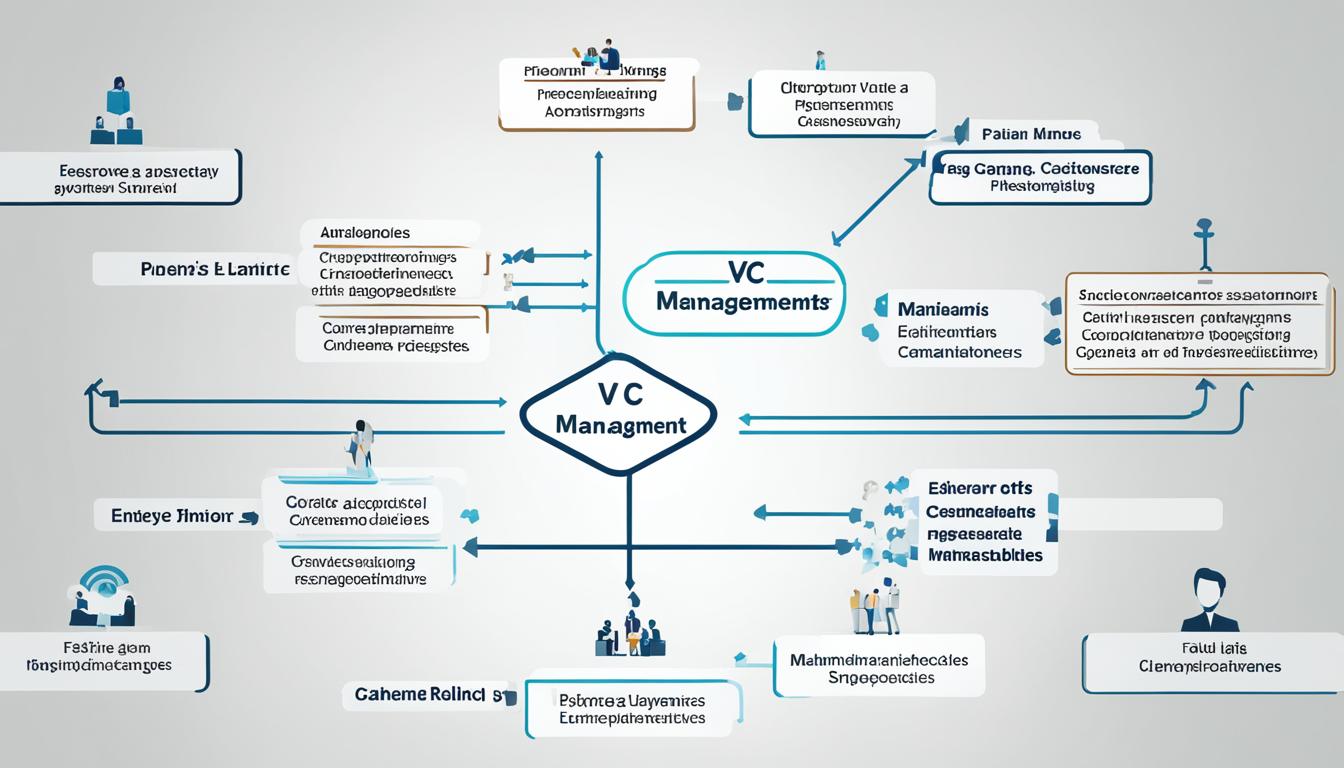When it comes to the world of venture capital (VC), understanding the hierarchy within a VC firm is crucial for entrepreneurs, investors, and those aspiring to a career in this dynamic industry. The hierarchy of a VC firm is often a reflection of the firm’s structure, responsibilities, and decision-making processes. But have you ever wondered what this hierarchy looks like and how it impacts the day-to-day operations of a VC firm?
Venture capital firms typically have a hierarchical structure, with different levels of employees responsible for various roles and responsibilities. At the top, you’ll find the Partners, who are the top-level executives responsible for making investment decisions, managing the firm’s portfolio, and raising capital from limited partners. Below the Partners, you’ll find the Principals/Associates, who are typically responsible for evaluating potential investments and conducting due diligence. Finally, there are the Analysts, who are usually entry-level positions responsible for researching potential investments and supporting the investment team. Venture capital firms also have operational and support staff that handles administrative tasks, finance, and HR.
Understanding this hierarchy within a VC firm is important for entrepreneurs seeking investment, as well as for those interested in a career in venture capital. By knowing the different roles and responsibilities, you can better navigate the VC landscape and position yourself for success.
Key Takeaways
- Venture capital firms have a hierarchical structure with Partners at the top, followed by Principals/Associates, Analysts, and Operations/Support Staff.
- Partners are responsible for making investment decisions, managing the firm’s portfolio, and raising capital from limited partners.
- Principals and Associates evaluate potential investments and conduct due diligence.
- Analysts research potential investments and support the investment team.
- Venture capital firms have operational and support staff that handle administrative tasks, finance, and HR.
Understanding Venture Capital Firms
The venture capital industry plays a vital role in funding and supporting innovative startups. To fully grasp the dynamics of this sector, it’s essential to understand how venture capital firms work, their life cycle, and the high-risk, high-reward nature of their investments.
How Venture Capital Firms Work
Venture capital firms raise funds from limited partners, such as institutional investors like pension funds, endowment funds, and family offices. These limited partners provide the necessary capital for the venture capital firm to invest in promising startups, with the ultimate goal of generating returns for their investors.
The Life Cycle of a VC Fund
The typical life cycle of a venture capital fund spans around 10-12 years. During this period, the firm actively invests in startups, supports its portfolio companies, and ultimately seeks to exit these investments through public offerings, acquisitions, or sales to other investors.
High-Risk, High-Reward Investments
Venture capital is known for its high-risk, high-reward nature. Only a small percentage of VC funds generate the majority of returns, as the success of a VC fund often follows a power-law distribution, with a few investments driving most of the gains.
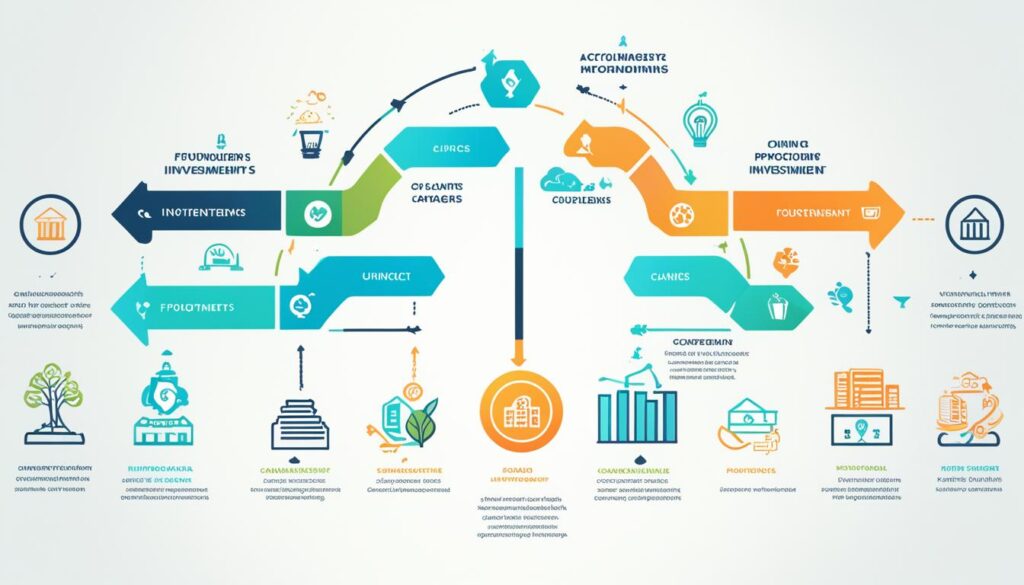
The Two Key Players: General Partners and Limited Partners
At the heart of a venture capital firm’s operations are two key players: the General Partners (GPs) and the Limited Partners (LPs). These two groups work in tandem to drive the firm’s success and generate returns for their investors.
General Partners (GPs)
The General Partners are the executives responsible for managing the venture capital firm’s daily operations. They make the critical investment decisions, engage with portfolio companies, and shape the firm’s overall strategy. GPs earn management fees for their work and also share in the fund’s profits, known as carried interest, which aligns their incentives with those of their investors.
Limited Partners (LPs)
The Limited Partners are the investors who provide the capital that the venture capital firm uses to invest in startups. These LPs are typically institutional investors, such as pension funds, university endowments, and high-net-worth individuals. They commit their capital to the VC fund for a period of around 10 years, relying on the GPs to effectively manage their investments and generate returns.
| General Partners (GPs) | Limited Partners (LPs) |
|---|---|
|
|
The symbiotic relationship between the venture capital general partners and the venture capital limited partners is fundamental to the success of a GP and LP in VC firms. This dynamic partnership ensures that the VC firm can access the necessary capital to invest in promising startups while providing the LPs with the expertise and oversight needed to generate attractive returns on their investments.
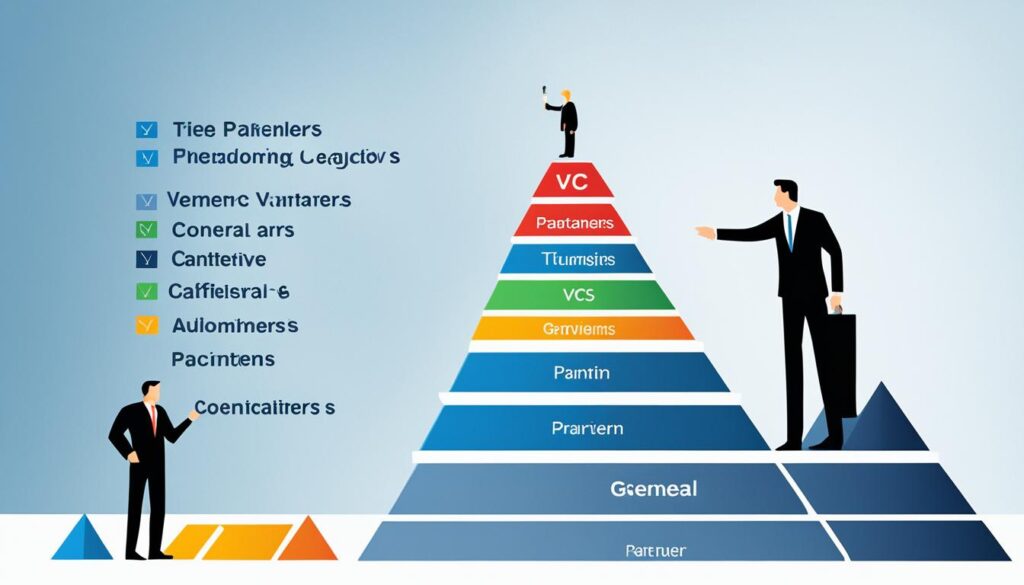
Roles and Responsibilities Within a VC Firm
Within a venture capital firm, there are several levels of employees with distinct roles and responsibilities. From junior analysts to seasoned general partners, each member of the VC team contributes to the firm’s success in unique ways.
Analysts
Analysts are the most junior members of a venture capital firm. Their primary responsibilities include participating in industry and VC events, connecting with potential target companies, and keeping up with the latest trends in the startup ecosystem. Analysts play a crucial role in the firm’s deal sourcing efforts, helping to identify promising investment opportunities.
Associates
Associates are typically the entry point for professionals in the venture capital industry. They spend their time sourcing deals, conducting initial evaluations, and supporting the due diligence process. Associates work closely with more senior members of the investment team to assess the viability and potential of startup companies.
Senior Associates
As they progress in their careers, senior associates take on additional responsibilities within the VC firm. They may lead deal sourcing efforts, oversee initial investment analysis, and collaborate with principals and partners on more complex transactions.
Principals/Venture Partners
Principals, also known as venture partners, act as a bridge between associates and the firm’s general partners. They are deeply involved in the due diligence process, helping to evaluate the risks and potential returns of new investments. Principals play a critical role in the decision-making process, working closely with the investment committee.
General Partners/Managing Directors
At the top of the VC firm’s hierarchy are the general partners and managing directors. These individuals are responsible for the firm’s strategic direction, making final investment decisions, and maintaining relationships with key stakeholders, such as limited partners and portfolio company executives.
Entrepreneur-in-Residence
Some venture capital firms also employ Entrepreneurs-in-Residence (EIRs), who are industry experts that serve as advisors or consultants to the firm. EIRs leverage their experience and networks to help source deals, provide strategic guidance to portfolio companies, and assist the investment team in evaluating potential opportunities.
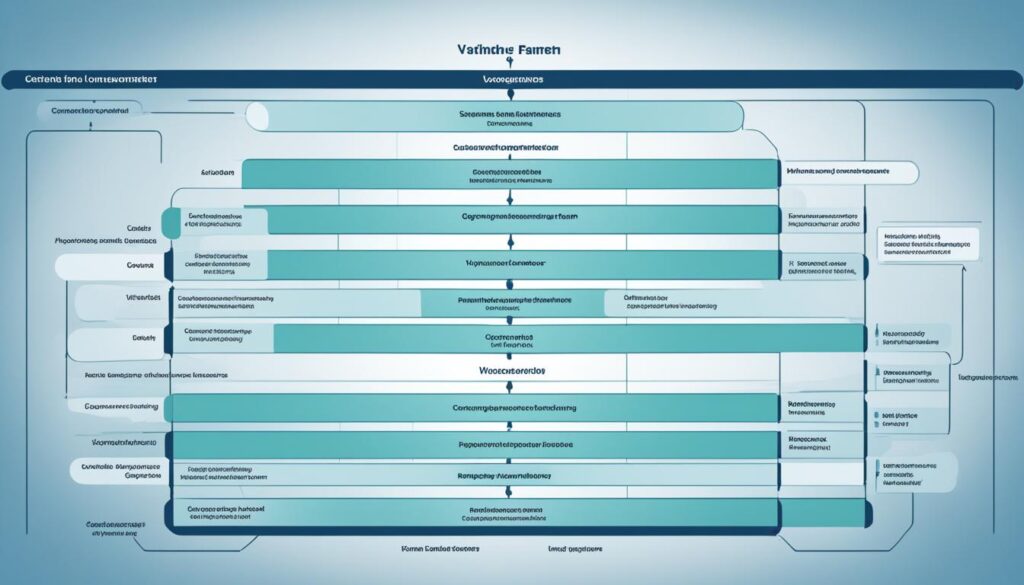
The Investment Committee: Decision-Making Powerhouse
The venture capital investment committee is a critical component of a VC firm’s decision-making process. Typically composed of senior members such as the Managing Partner and other top executives, this committee is responsible for the final decision on whether to proceed with a potential investment.
After exhaustive due diligence has been completed, the Investment Committee thoroughly assesses the proposed investment’s potential risks and returns, its alignment with the firm’s investment thesis, and the strategic value it could bring to the existing portfolio. This comprehensive evaluation by the committee is a crucial step in the venture capital firm’s overall investment process.
The committee’s decision-making is not taken lightly, as it can significantly impact the trajectory of the VC firm and its limited partners. Their expertise, industry insights, and risk management acumen are instrumental in ensuring each investment aligns with the firm’s long-term goals and maximizes the returns for its investors.
| Key Responsibilities of the Investment Committee | Factors Considered in the Decision-Making Process |
|---|---|
|
|

Supporting Teams: Legal, Compliance, Finance, and More
In addition to the investment professionals, venture capital firms have supporting teams that handle various operational functions. The Legal and Compliance Team manages all legal aspects related to transactions and ensures compliance with investment regulations. This team plays a critical role in mitigating risks and upholding the firm’s commitment to ethical practices.
The Financial Team is responsible for the financial health and performance of the venture capital firm. This team handles accounting, fund management, and monitors the financial status of the investments and the firm itself. They ensure the efficient allocation of capital and provide insightful financial analysis to support investment decisions.
The Investor Relations team is the bridge between the venture capital firm and its limited partners (LPs). This team maintains regular communication with existing LPs, provides updates on the fund’s performance, and spearheads fundraising efforts for new funds. Their role is crucial in fostering strong relationships with the firm’s investors and securing future capital commitments.
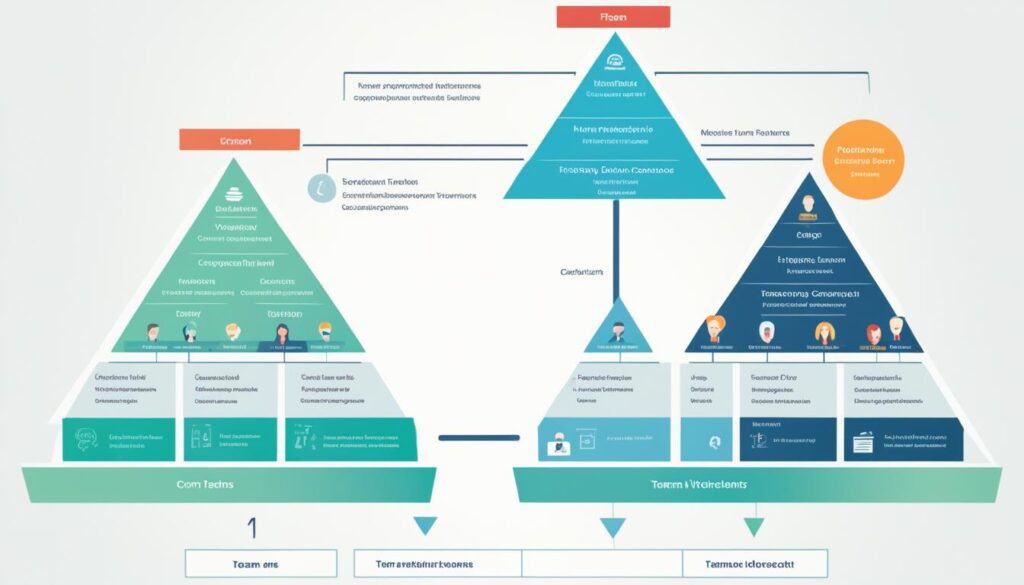
These supporting teams play a vital role in the overall operations and success of the venture capital firm. By handling legal, compliance, financial, and investor relations responsibilities, they enable the investment professionals to focus on identifying and nurturing promising startups, ultimately driving the firm’s growth and profitability.
What is the hierarchy of a VC firm?
Venture capital firms typically have a hierarchical structure, with different levels of employees responsible for various roles and responsibilities. Understanding the venture capital firm hierarchy, VC firm organizational structure, and the VC firm roles and responsibilities is crucial for both entrepreneurs seeking investment and individuals interested in a career in the venture capital industry.
At the top of the VC firm hierarchy are the General Partners (GPs), who are the firm’s top executives responsible for making investment decisions, managing the portfolio, and raising capital from Limited Partners (LPs). These GPs usually have 15+ years of relevant industry or investing experience.
Below the GPs are the Principals and Associates, who are responsible for evaluating potential investments, conducting due diligence, and supporting the investment team. Associates are typically promoted post 2-3 years of being an analyst, while Analysts are the most junior members, usually promoted to Associate after 1.5 – 2 years, though many choose to pursue an MBA or entrepreneurship.
Venture capital firms also have Operations and Support Staff who handle administrative tasks, finance, legal, compliance, and investor relations. Some firms also employ an Entrepreneur-in-Residence (EIR), who is typically a former successful startup CEO or experienced individual brought in to accelerate progress in the firm’s portfolio companies.
This hierarchical structure, with its distinct VC firm roles and responsibilities, helps venture capital firms efficiently manage their operations, investment decisions, and relationships with limited partners and portfolio companies.

Portfolio Management and Exit Strategies
After venture capital firms make investments, they actively manage their portfolio companies. The General Partners (GPs) closely monitor the performance of these portfolio companies, provide strategic advice, and sometimes even place GPs on the boards of the companies. Additionally, they prepare regular reports on the progress of each company for the Limited Partners (LPs).
Monitoring Portfolio Performance
Ongoing portfolio management is a critical aspect of a venture capital firm’s operations. GPs meticulously track the key performance indicators (KPIs) of their portfolio companies, analyzing their growth, market positioning, financial health, and other crucial metrics. This vigilant monitoring allows the VC firm to identify any potential issues or opportunities early on and work closely with the portfolio companies to address them.
Preparing for Successful Exits
A significant part of a VC firm’s operations involves planning and executing exit strategies for their portfolio companies. These exits can take the form of public offerings, acquisitions, or sales to other investors. Successful exits are crucial as they return capital to the limited partners and generate profits for the firm and its investors, further strengthening the venture capital investment exits.
By actively managing their venture capital portfolio and strategizing for optimal exits, VC firms aim to maximize the returns for their limited partners and solidify their reputation in the industry.
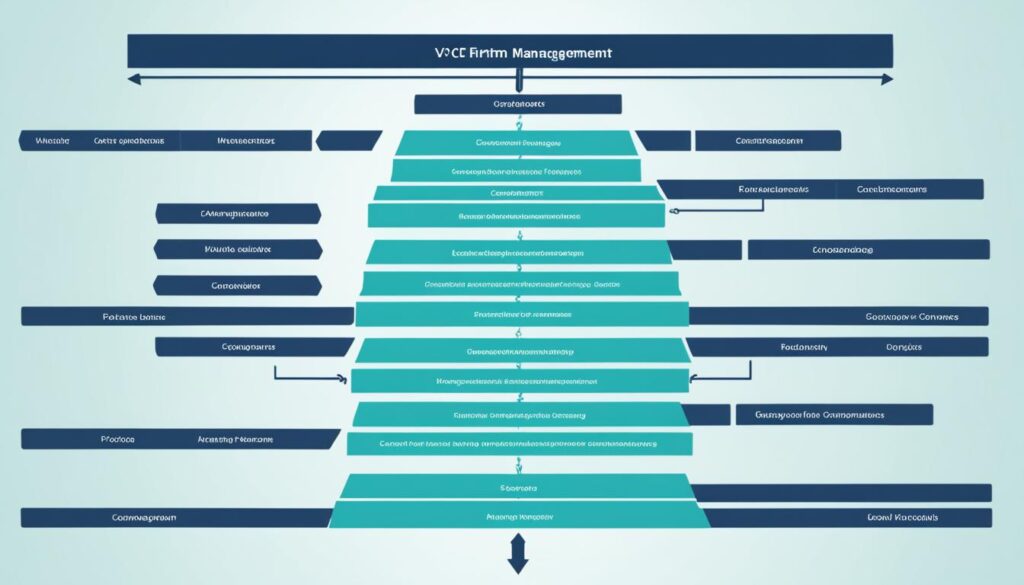
Types of Venture Capital Funding
Venture capital funds typically specialize in different stages of financing, depending on the firm’s expertise and the current market trends. The main types of venture capital funding include:
Seed Capital
Seed capital is the earliest stage of venture capital funding, typically provided to startups with a new idea or a prototype. This type of funding helps founders get their business off the ground, covering expenses like product development, market research, and initial hires. Seed capital investments are considered high-risk, high-reward, as they back companies that are still in the ideation or early development phase.
Early Stage Capital
Early stage capital is provided to startups that have already developed a working product and are beginning to gain traction in the market. This funding helps companies with activities such as scaling their operations, expanding their sales and marketing efforts, and increasing their customer base. Early stage investments are still considered risky, but startups at this phase have progressed beyond the initial concept stage.
Expansion Capital
Expansion capital, also known as growth capital, is provided to more mature startups that are ready to scale their business further. This type of funding is used to fuel the company’s expansion, whether through geographic expansion, product development, or market penetration. Expansion capital investments are generally less risky than seed or early stage deals, as the startups have already established their business model and achieved a certain level of success.
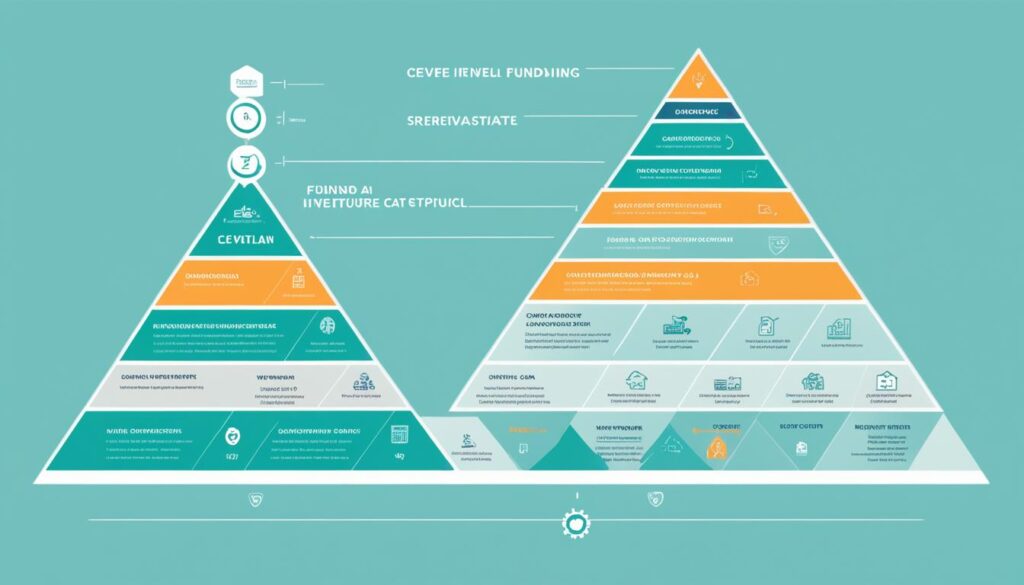
Conclusion
As we’ve explored, venture capital firms play a vital role in fostering innovation and supporting the growth of startups. Understanding the intricate hierarchy and structure of a VC firm is crucial for entrepreneurs seeking investment, as well as for those interested in pursuing a career in this dynamic industry.
The VC firm’s hierarchy typically consists of partners, principals, associates, and analysts, each with distinct roles and responsibilities. General partners are the decision-makers, responsible for strategic direction, investment decisions, and fundraising, while the supporting teams handle legal, compliance, finance, and investor relations. This structure ensures that VC firms can effectively evaluate, manage, and exit their investments, with the ultimate goal of generating returns for their limited partners.
As the startup ecosystem continues to evolve, the importance of venture capital firms in providing not just funding but also strategic guidance and industry expertise will only grow. By understanding the inner workings of these firms, entrepreneurs and aspiring VC professionals can better navigate the complexities of the venture capital landscape and capitalize on the opportunities it presents.
FAQ
What is the typical hierarchy within a venture capital firm?
How do venture capital firms raise funds?
What are the key players in a venture capital firm?
What are the different roles and responsibilities within a venture capital firm?
What is the role of the Investment Committee in a venture capital firm?
What are the supporting teams within a venture capital firm?
How do venture capital firms manage their portfolio companies?
What are the main types of venture capital funding?
Source Links
- https://www.goingvc.com/post/the-anatomy-of-a-venture-capital-firm-understanding-structure-and-operations
- https://medium.com/@girlsintovc/what-does-the-hierarchy-look-like-within-a-venture-capital-firm-1b29a39afb6d
- https://www.linkedin.com/pulse/pecking-order-hierarchy-responsibilities-vc-firm-2-kanamarlapudi
